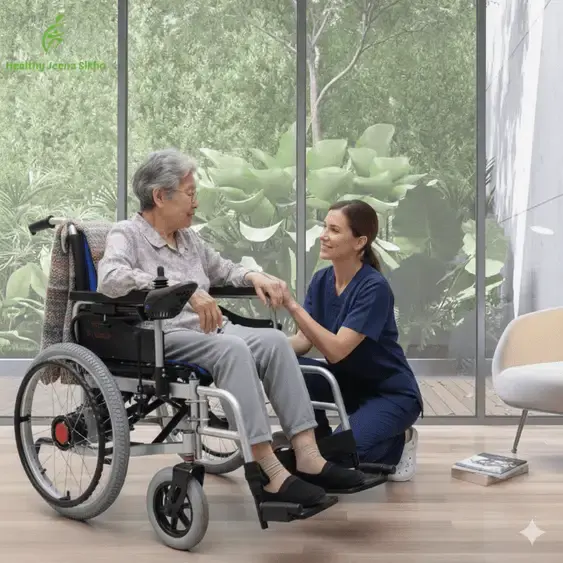Post-Surgery Care at Home: Essential Tips for Families
- 2199jessica
- Oct 25, 2025
- 3 min read

Recovering from surgery doesn’t end once you leave the hospital — in fact, the home recovery phase is just as important. With proper post-surgery care at home, patients can heal faster, avoid complications, and regain independence safely. This guide helps families understand what’s needed to create a supportive and safe recovery environment.
Why Post-Surgery Care Matters
After surgery, the body needs time to repair tissues, rebuild strength, and prevent infections. Proper post-op care ensures:
Faster recovery and better mobility
Reduced chances of infection or complications
Emotional comfort in a familiar home setting
Fewer hospital readmissions
If your loved one has recently undergone a procedure, arranging post-surgery care at home is a vital step toward smooth recovery.
For patients with breathing issues post-surgery, you can also read our guide on BiPAP benefits for COPD patients at home.
Common Challenges for Patients and Caregivers
Caring for a post-operative patient can be challenging, especially without the right equipment or guidance. Some of the most common hurdles include:
Limited mobility due to pain or stitches
Difficulty maintaining hygiene or managing wounds
Emotional stress for both patient and family
Risk of bedsores, falls, or infections
Having the right support — such as trained caregivers and essential medical devices — can make recovery much easier and safer. You can explore essential COPD home care equipment to understand how rental medical devices help in recovery.
Setting Up Your Home for Recovery
A well-organized home environment plays a key role in recovery. Consider the following setup tips:

1. Safety First
Keep pathways clear to avoid tripping hazards.
Install grab bars in bathrooms.
Ensure proper lighting, especially at night.
2. Mobility Support Patients with reduced movement can benefit from aids such as:
3. Hygiene and Comfort
Keep the wound area clean and dry.
Use waterproof bed protectors and soft linens.
Maintain a calm and clean environment.
The Role of Medical Equipment in Home Recovery
For safe and comfortable healing, having the right medical tools at home makes a big difference. Some essentials include:
Hospital Bed: Adjustable beds help patients sit up, sleep comfortably, and prevent bedsores. Learn more in our guide on .
Wheelchair or Walker: Promotes movement and independence.
Commode Chair: Helpful for patients with limited mobility.
Oxygen Concentrator or BiPAP Machine: For patients recovering from respiratory surgery or with breathing difficulties, consider oxygen concentrator rental options
You can easily rent or buy these devices online to make post-surgery recovery more efficient and affordable.
When to Seek Medical Assistance
Even with the best home setup, always monitor for warning signs such as:
High fever or chills
Unusual pain or swelling around the incision
Breathing difficulty or dizziness
Persistent bleeding or wound discharge
In such cases, contact your doctor immediately or visit a healthcare centre. If mobility is a concern, you can arrange home nursing or physiotherapy services for added safety.
FAQ: Post-Surgery Care at Home
Q1. Can surgery recovery be managed completely at home?
Yes, most post-surgery recoveries can be managed at home with the right care, guidance, and medical equipment. However, always follow your doctor’s advice.
Q2. How long does it take to recover after surgery?
It depends on the type of surgery and the patient’s health, anywhere from a few days to several weeks.
Q3. What medical equipment is essential for post-surgery care?
A hospital bed, wheelchair, walker, and basic hygiene aids are often recommended.
Q4. Should I rent or buy recovery equipment?
If the recovery period is short, renting is cost-effective. For long-term care, buying may be more practical. Check our rent vs buy comparison for COPD equipment for guidance.
Q5. How can I prevent infections after surgery?
Maintain wound hygiene, follow medication schedules, and use sanitised medical tools.
Final Thoughts
Providing effective post-surgery care at home is about creating a safe, comfortable environment where recovery can happen naturally. With the right guidance, support, and equipment, families can ensure their loved one heals smoothly and confidently.
👉 Explore essential medical equipment for a safe home recovery and make post-operative care stress-free for your family.




Comments